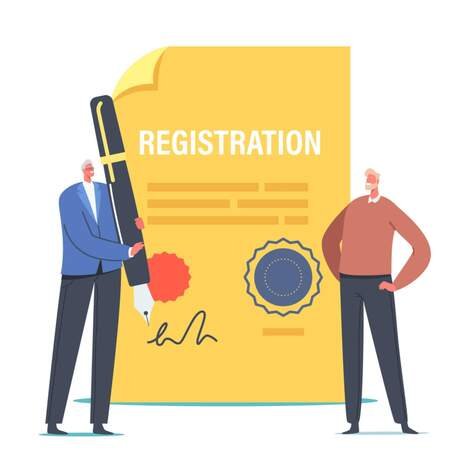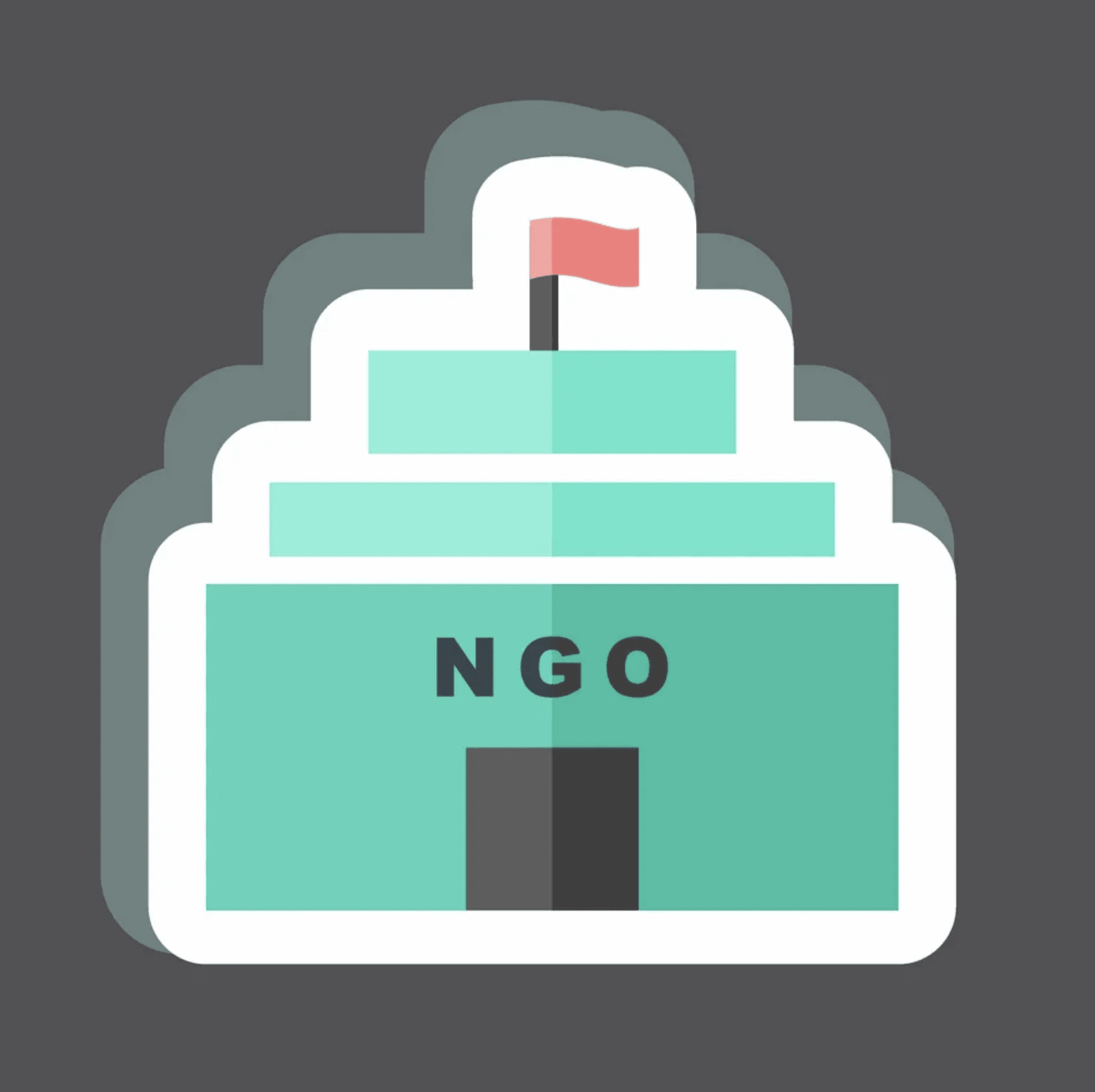
Barrister Remura Mahbub
22 March 2016
Updated in 2022 August.
A non-governmental organisation is a legal institution that is not a direct member of a government, is free from government control, and is not a direct political rival. Generally, NGOs are founded by a group of persons seeking to effect beneficial social change. They attempt to fulfils their mission by collecting contributions from a variety of global donors. There are numerous types of NGOs, including regional, national, worldwide, etc.
CHARITY AND NGO REGISTRATION IN BANGLADESH
Different types of NGOs:
- International charity
- National nonprofit
- Registration of non-profit organizations:
- International non-governmental organization: NGO Affairs Bureau (NGOAB)
Before operating in Bangladesh, an international organization that is registered outside of Bangladesh must register with the NGO Affairs Bureau (NGOAB). Moreover, for an international NGO or charity to collect funds from foreign organizations or institutions, NGOAB registration is required.
The Foreign Donations (Voluntary Activities) Regulations Act of 2016 is relevant (FDRA)
Process of NGO and Charity Registration:
Step 1:
Application to the NGOAB
Step 2:
Follow the format outlined in the ‘FD-1 Form’
Step 3:
Submit Required Documents with the FD-1 Form
Step 4:
Payment of government fees, such as the Treasury challan, VAT, etc.
Step 5:
Submission of the Application to Ministries
Step 6:
Law enforcement agency (Special Branch of Police, National Security Intelligence, etc.) conducts a security check.
Step 7:
Ministry inspection, monitoring, and review of the NGO
Step 8:
Review and final examination by the NGOAB, and issue of a letter of registration to operate in Bangladesh if satisfied.
Step 9:
Registration Process Timeline In actuality, the full process may take 6-7 months, although the official timeframe is 90 working days.
Time restriction for Registration and Renewal:
The operational permit for an international NGO is valid for ten years, but the documentation must be resubmitted six months ahead to the expiration of this period in order to continue operating in Bangladesh.
Option to operate without registration:
If an international NGO or charity has not yet been registered under NGOAB, it may function in this country by partnering with another international organization that has been established in accordance with the aforementioned Act in Bangladesh. As an illustration, working under the banner of a larger company, with or without the related service costs, by adhering to the partner’s policy, etc.
NGO Affairs Bureau (NGOAB): National NGO Registration Procedure:
In addition to registering with various departments, such as the Department of Social Services, Microcredit Regulatory Authorities, Department of Women Affairs, Bangladesh Registrar of Joint Stock Companies and Firms, etc., local NGOs in Bangladesh are required to register with the NGO Affairs Bureau (NGOAB) in order to accept donations from foreign organizations or institutions.
The Foreign Donations (Voluntary Activities) Regulations Act of 2016 is relevant (FDRA)
Methodology of Registration:
As noted previously, the registration process for a local NGO is comparable to that of an international NGO.
Microcredit Regulatory Authority:
Relevant Laws:
– 2006 Microfinance Regulatory Act
2010 Microcredit Regulatory Rules
Step 1 of the registration procedure entails submitting a completed “Annexure A” application to the governing body.
Step 2: Submit the required documentation alongside ‘Annexure A’.
Step 3: The Authority will assess the application materials and, if satisfied, will require payment of the License Fee.
Step 4: Upon receipt of the licensing fee from the applicant, the Authority will issue the license. If the application is denied, the Authority will notify the applicant in writing within thirty days.
The Voluntary Social Welfare Agencies (Registration and Control) Ordinance of 1961 and accompanying Rules of 1962 are applicable.
Methodology of Registration:
Step 1: Obtaining name clearance from the relevant office.
Step 2: Submit a Form-B application for registration to the appropriate authority.
Step 3: Submit the appropriate documents along with the “Form-B.”
Payment of government fees, such as the Treasury challan, VAT, etc.
Step 5: Application sent to relevant Ministries
Step 6: Law enforcement agency (Special Branch of Police, National Security Intelligence, etc.) conducts a security check.
Step 7: Ministry inspection, monitoring, and review of the NGO
Review and final inspection by the DSS, followed by registration issue if satisfied.
| Actual | Previous | Highest | Lowest | Dates | Unit | Frequency | ||
|---|---|---|---|---|---|---|---|---|
| 32.50 | 25.00 | 40.00 | 25.00 | 1997 – 2021 | percent | Yearly |
source: tradingeconomics.com
“Drafting of the Memorandum of Articles and Articles of Association, as well as other required documents, as well as the Directors’ resolution to establish a new company in Bangladesh”
Department of Women Affairs (DWA):
Organizations wishing to work for the welfare of women and children can register with the Department of Women Affairs (DWA), which is part of the Ministry of Women & Children Affairs. It has a similar organizational structure to the Department of Social Services (DSS).
The Voluntary Social Welfare Agencies (Registration and Control) Ordinance of 1961 and accompanying Rules of 1962 are applicable.
The registration process is nearly identical to that of the Department of Social Services under the The Voluntary Social Welfare Agencies (Registration and Control) Ordinance, 1961 and related Rules, 1962, as described previously.
Registrar of Joint Stock Firms and Companies (RJSC):
An NGO or charity can be registered at the Bangladesh Registrar of Joint Stock Companies and Firms under the Ministry of Commerce, and the vast majority of non-profit organizations in Bangladesh have been formed and registered under its broad scope and flexibility to allow for a wide range of activities.
The Societies Registration Act of 1860 is relevant.
Companies Act of 1994 registration Procedure:
Registration procedure under the Societies Registration Act:
Seven or more individuals associated for literary, scientific, charitable, or other similar objectives may apply to the Bangladesh Registrar of Joint Stock Companies and Firms to form a society by subscribing to the society’s memorandum of association and rules and regulations.
Step 1: The RJSC issues a name clearance.
Step 2: Submit an application to RJSC with the Memorandum of Association and Letter of Clearance for Registration, as well as all other relevant documentation.
Step 3: Government fee payment
Step 4: Law enforcement agency (Special Branch of Police, National Security Intelligence, etc.) conducts a security check.
Inspection, monitoring, and evaluation of the NGO by the relevant authorities is the fifth step.
If satisfied, the authorities will issue a registration if Step 6 is met.
Process of Registration under Companies Act: According to Section 28 of the Companies Act, 1994, an association can be incorporated as a non-profit company conforming to the rules and regulations of a limited liability company when it obtains a license from the relevant authority, i.e. the Bangladesh Registrar of Joint Stock Companies and Firms under the Ministry of Commerce.
Obtaining registration with RJSC is nearly identical to what was described above. The government will issue a license if it is satisfied that the organization will promote trade, art, science, religion, charity, or any other beneficial goals, and that it will utilize its revenues or income to advance those goals without giving dividends to its members. Under the Firms Act of 1994, certain types of welfare-oriented companies may be incorporated as limited liability companies.
Registration of Trusts: “A trust may be established for any lawful purpose,” including charitable work. The trustees are responsible for the care and management of the trust property in order to accomplish the stated purposes of the trust deed. A Trust may be established for any lawful purpose, i.e. for the benefit of children, for the public good, for religious purposes, or for any other purpose, by interested individuals, legal or natural, with specified property, i.e. movable or immovable, or funds for the benefit of the community. The trustee or trustees are responsible for the care and management of trust property in order to achieve the purposes outlined in the trust deed.
Statutes pertinentes: – Trust Act, 1882
Step 1 of the Trust Registration Process is the creation of a trust through a trust deed that specifies the author’s aim.
In the trust deed, the creator of the trust must state with reasonable certainty his intent to create the trust, the trust’s purpose, the beneficiary, the trust’s property, and any transfers of trust property to the trustee.
The formation of a genuine trust necessitates the use of explicit, unambiguous language to indicate intent, subject matter, and specified purpose.
By registering the trust deed, the interested organization can begin operations. For instance, the trust deeds are recorded at the Sub-Registrar Office where the NGOs’ headquarters are located. Under this Act, foundations, trusts, and other benevolent organizations are registered.
Reporting regulatory authority of charitable trusts: Currently, there is no regulatory authority to which charitable trusts are required to report; therefore, registration or licensing from other Non-Profit Organization regulatory or registration authorities is required for their operation to run smoothly. In such instances, Trusts are required by law to report to the relevant authority.
Trust-based NGO or charity administration:
A Board of Trustees manages a trust by safeguarding and maximizing the trust’s assets, in accordance with the trust deed.
Waqf Registration: Under Muslim law, the notion of Waqf is comparable to the English concept of trust. An owner of property, both movable and immovable, can create a waqf for the use of beneficiaries in perpetuity through a statement in a legal document. In accordance with the provisions of the waqf instrument, the waqf is governed by a trustee known as a mutawalli.
The Waqfs Ordinance of 1962 is the relevant statute.
Registration Procedure:
Step 1: The Mutawallis waqf property must submit an application to the office of the Administrator of Waqf.
Step 2: Upon receipt of the application, the Administrator will register the waqf property and preserve its comprehensive information, including the deeds, the name of the mutawalli, and the norms of succession to the office of mutawalli, in his register.
Inadequacies and Recommendations: Numerous NGOs and charities have been established and operate under the aforementioned statutes, yet these same statutes are currently causing complications. It should be emphasized that there is no consistent law for forming an NGO, but rather a variety of laws, rules, and bodies based on the organization’s nature, objectives, purposes, constitution, resolutions, etc. Therefore, a consolidated, standard law is of the utmost importance for the establishment, operation, and legalization of NGOs in Bangladesh.

The legal team of TR, The Legal Source are highly experienced in providing all kinds of services related to forming and registering a Private Limited Company in Bangladesh . For queries or legal assistance, please reach us at:
E-mail: info@trfirm.com
Phone: +8801847220062
Address: House 410, Road 29, Mohakhali DOHS
Subscribe to our Awesome Newsletter.







0 Comments